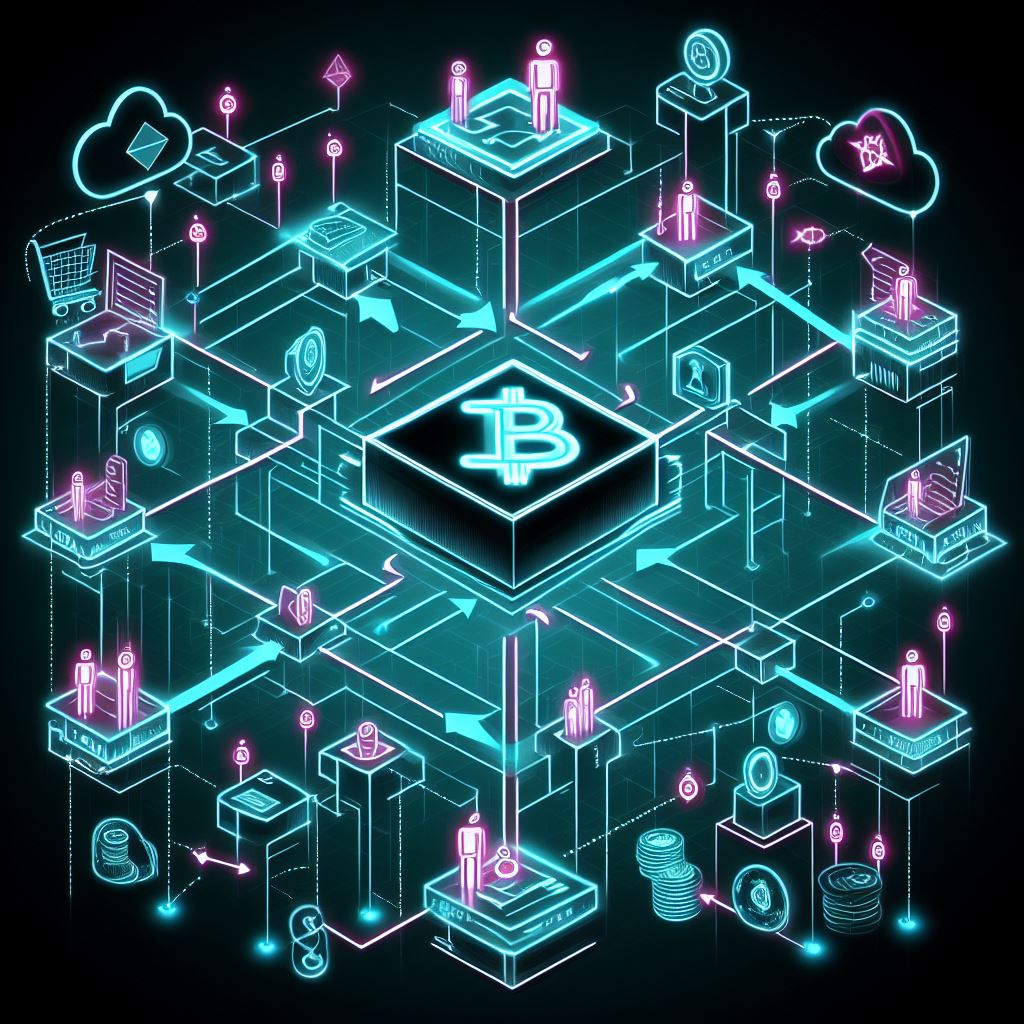Amid the ever-evolving landscape of technology, few innovations have garnered as much attention and intrigue as blockchain. It has emerged as a transformative force with the potential to reshape industries and redefine the way we conduct transactions, share information, and ensure security in the digital realm. In this exploration, we delve into the world of blockchain, unraveling its intricacies, and shedding light on how this revolutionary technology operates.
Want to know more about our Tech Solutions? Visit us at www.nesesho.com
The Genesis of Blockchain
Blockchain technology, at its core, is a decentralized and distributed digital ledger. It found its origins in 2008 with the publication of a whitepaper by an individual, or group, using the pseudonym Satoshi Nakamoto. The whitepaper introduced Bitcoin, the first cryptocurrency, as a solution to the challenges of traditional financial systems. Blockchain, the underlying technology, serves as the backbone of Bitcoin and many other cryptocurrencies.
The Building Blocks of Blockchain
At its essence, a blockchain is a chain of blocks, each containing a list of transactions. These transactions are not merely financial; they can represent any exchange of data, assets, or information. The defining feature of this technology lies in its structure: once a block is added to the chain, it becomes an immutable record. This means that the data within a block is secure and cannot be altered without changing all subsequent blocks, making the system highly resistant to fraud or tampering.
How Does Blockchain Work?
1. Decentralization: Unlike traditional centralized systems, blockchain operates on a network of computers, known as nodes, distributed across the globe. Each node has a copy of the entire blockchain. This decentralization ensures that there is no single point of control, making it robust and resistant to single points of failure.
2. Consensus Mechanisms: To validate and record transactions, blockchain relies on consensus mechanisms. In the context of cryptocurrencies, the most well-known consensus mechanism is Proof of Work (PoW). In PoW, miners solve complex mathematical puzzles to add a new block to the chain. This process not only secures the network but also incentivizes miners with rewards. In recent times, Proof of Stake (PoS) and other consensus mechanisms have gained popularity for their energy efficiency and security.
3. Transparency and Security: Once a transaction is recorded on the blockchain, it is visible to all participants in the network. This transparency serves as a safeguard against fraud and corruption. Security is maintained through cryptographic techniques, ensuring that data remains private and tamper-resistant.
4. Immutability: As mentioned earlier, once data is added to a block, it is nearly impossible to change. The blocks are interconnected through cryptographic hashes, with each block containing the hash of the previous one. This creates a chain of interdependent blocks, making it computationally infeasible to alter a single block without altering all subsequent blocks, a task that would require an unattainable amount of computational power.
5. Smart Contracts: Blockchain can execute self-executing contracts known as smart contracts. These contracts are programmed to automatically enforce the terms and conditions of an agreement without the need for intermediaries. They have applications beyond finance, including supply chain management, real estate, and more.
Applications of Blockchain
The applications of blockchain technology extend far beyond cryptocurrencies. Some noteworthy areas where it has begun to make a substantial impact include:
1. Financial Services: Beyond cryptocurrencies, blockchain has potential applications in banking, reducing transaction costs, and enhancing security.
2. Supply Chain Management: Blockchain can be used to track and verify the origin of products, improving transparency and reducing fraud.
3. Healthcare: It can secure the sharing of patient records, ensuring data privacy and integrity.
4. Voting Systems: Blockchain can potentially revolutionize the electoral process by enhancing transparency and security.
5. Intellectual Property and Copyright: Artists and creators can use blockchain to protect their work and ensure fair compensation.
6. Real Estate: The technology can streamline property transactions by securely recording titles and contracts.
7. Cross-Border Payments: Blockchain can facilitate international payments, reducing the cost and time associated with traditional banking systems.
Challenges and Future Prospects
While the potential of blockchain is immense, it is not without its challenges. Scalability, energy consumption (particularly in PoW systems), and regulatory concerns are key obstacles that must be overcome. However, the ongoing research and development in the field aim to address these issues and unlock the technology’s full potential.
Conclusion
Blockchain technology is a revolutionary force that has disrupted traditional systems, offering a glimpse into a future where trust, security, and transparency are paramount. It stands as a testament to the power of decentralized networks and cryptographic security, holding the promise to transform various industries and the way we conduct business in the digital age. As it continues to evolve, its true impact on society is yet to be fully realized, but one thing is clear: blockchain is here to stay, and its influence is bound to extend far beyond the confines of the digital world.
Want to know more about our Tech Solutions? Visit us at www.nesesho.com



